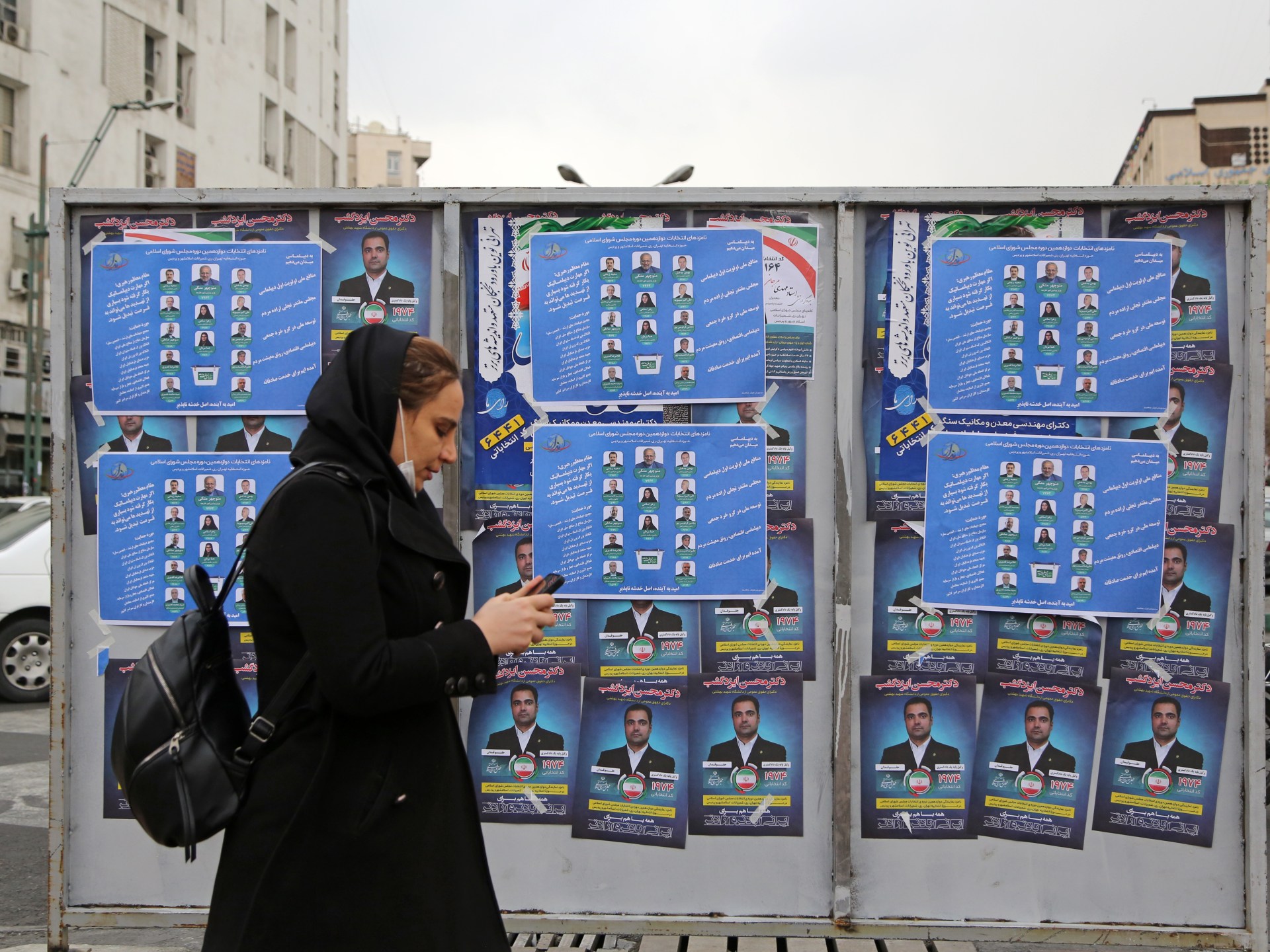A banner in Tehran with the names of some candidates for the Iranian Shura Council elections hung (Anatolia)
Polling stations opened their doors - today, Friday - in Iran to participants in the elections for the Shura Council and the Assembly of Experts responsible for appointing the Supreme Leader, which is the highest authority in the Islamic Republic.
More than 61 million Iranians were invited to cast their votes in about 60,000 polling stations to choose members of the Shura Council and the Leadership Council of Experts, and the latest opinion poll published on state television indicated that 41% of those surveyed would participate in the voting process “without a doubt.”
The legislative elections in 2020 witnessed the lowest participation rate since the declaration of the Islamic Republic in 1979, as only 42.57% of voters cast their votes during the voting that took place at the beginning of the Covid-19 epidemic crisis, according to official figures.
A record number of 15,200 candidates are participating, while some expectations indicate that the elections will strengthen the conservatives’ grip, continuing their broad dominance over the council, in which they currently hold more than 230 seats out of 290.
It is also expected that these elections will confirm the decline of the reformist and moderate camp since the 2020 elections. This camp only hopes to win some seats after the Guardian Council excluded a large number of its candidates.
The number of candidates for the Shura Council reached 15,200 candidates (Anatolia Agency)
Khatami regrets it
The pro-government daily newspaper Iran said that these reformists "preferred to abandon voting by making excuses" so as not to suffer a setback at the ballot boxes.
The leader of the reformist movement, former President Mohammad Khatami (1997-2005), expressed his regret that Iran is “very far from free and competitive elections.”
The conservatives are also expected to strengthen their control over the Leadership Council of Experts, a body composed of 88 members of the clergy elected for a term of 8 years by direct universal suffrage, which selects the new supreme leader and supervises his work and the possibility of his removal.
144 candidates, all of them men, are competing in these elections, but prominent figures were excluded and their nominations were rejected, at the forefront of which is former President Hassan Rouhani (2013-2021), whose nomination to the Assembly of Experts was invalidated even though he has been a member of it for 24 years.
Rouhani said on Wednesday that voting is an act that must be undertaken by “those who protest the status quo” and “want more freedom.”
Supreme Leader Ali Khamenei casts his vote in the legislative elections in Tehran (Reuters)
"Ballot paper and rocket"
Supreme Leader Ali Khamenei urged Iranians last Wednesday - the last day of the election campaign - to vote massively.
Khamenei said while receiving in Tehran a group of young people who will be able to vote for the first time, “Iran’s enemies are closely awaiting the presence of the Iranian people... in the electoral arena.”
He added, "The elections must be viewed from the perspective of the national interest and not from a sectarian or group perspective," stressing that "those who love Iran, its people, and its security must know that if the elections are weak, no one will benefit and everyone will be harmed."
Khamenei considered that strong participation in the elections is a guarantor of national security, noting that "if the enemy sees weakness in the Iranians in the field of national strength in various aspects, it will threaten national security."
For its part, the Revolutionary Guards considered that “strong participation” would prevent possible “foreign interference” in the context of the war in Gaza between Israel and the Iranian-backed Palestinian Hamas movement.
Revolutionary Guard Commander Hossein Salami likened “every ballot paper” to “a missile launched into the heart of our enemies,” according to what was reported by the Iranian “Tasnim” agency.
Yesterday, Thursday, Washington criticized the Iranian elections, with State Department spokesman Matthew Miller saying, “I have no expectation that the Iranian elections will be free and fair, and I suspect that a large number of Iranians do not expect the elections to be free and fair.”
Source: Agencies

